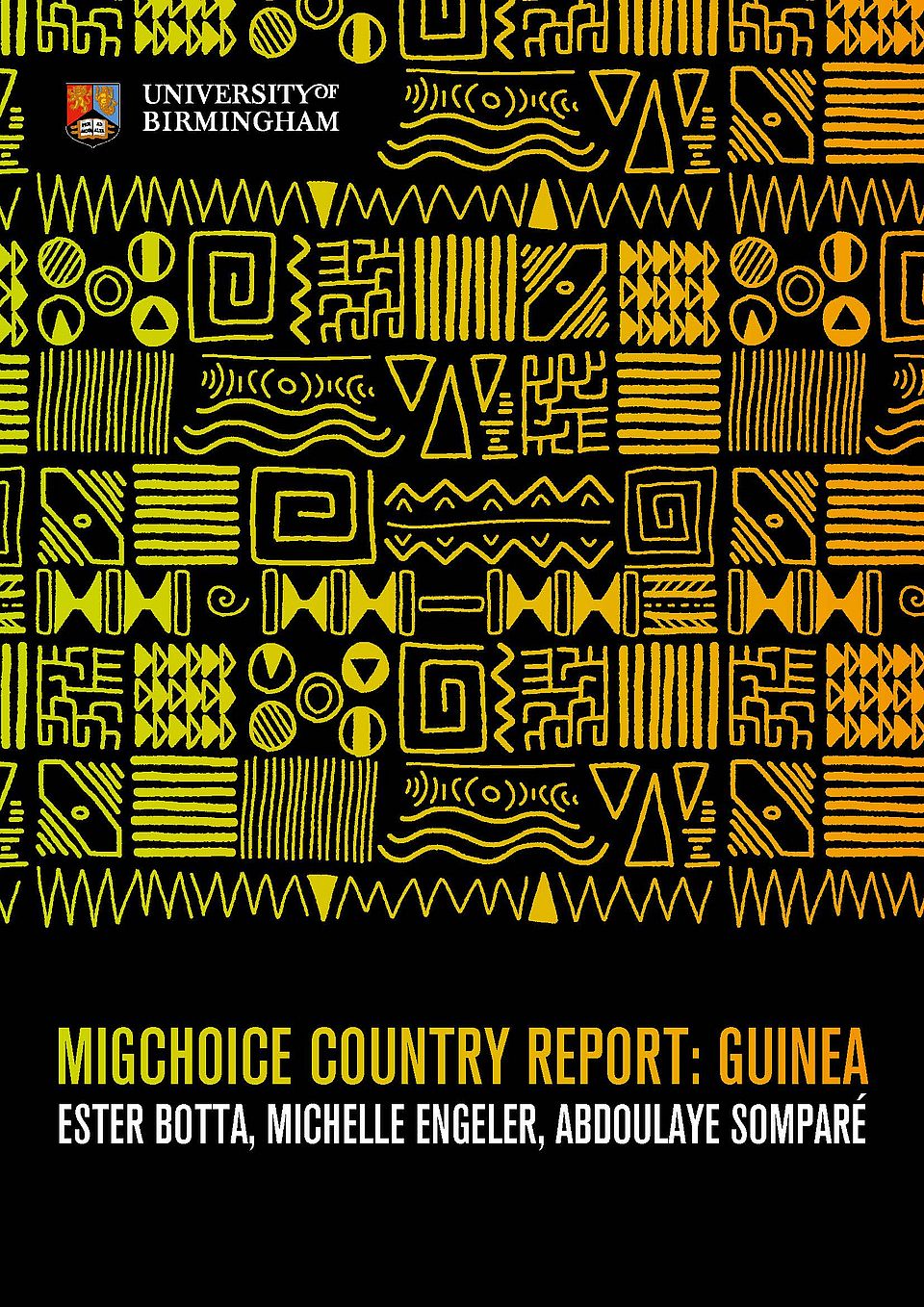News
/ Research
Publication: "MIGCHOICE Country Report: Guinea"

Michelle Engeler is the co-author of the country report on Guinea in the frame of the research project MIGCHOICE. The project lead by the Department for International Development at the University of Birmingham is concerned with migration decision-making and development in West Africa.
Introduction
This report focuses on the relationship between development interventions and migration in the Republic of Guinea. Although Guinea is a small country in West Africa, with a surface area of 245,857 Km², it is a country of great natural and ethnic diversity, with four natural regions that bring together populations that are very different from a cultural point of view, but also with regard to the culture of migration. The Fulani and Malinke populations of Middle and Upper Guinea, as well as the Conianke of the forest zone and the Diakhanké of Boké, have a long tradition of mobility. On the other hand, the populations of Maritime Guinea and most of the ethnic groups in the forest zone are more sedentary, but they have a long-established culture of welcoming foreigners into their homes, which also influences their interrelation with migration. Against that background and with regard to current conjunctures the migration projects of Guineans seem to be shaped by three different factors, namely the migration cultures of each ethnic group, the evolution of the Guinean state’s migration policies and the current trend perceiving migration as a strategy of social reproduction for the wealthiest families and social mobility for the less privileged strata.

